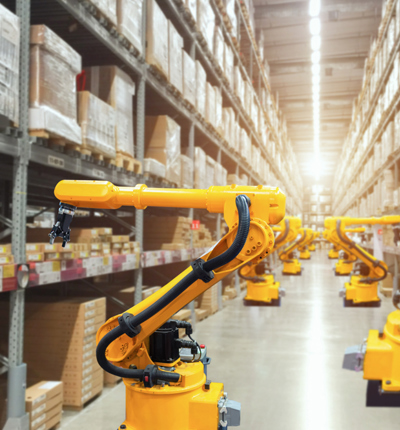
The rise of automated workers: Part 1 – should we be worried?
Jasmine Patel and Jessica Hunt from the employment team discuss the rise of automated workers
Posted on 31 July 2019
Throughout history humans have sought to create machines which make their life easier and less time consuming; from the Romans inventing aqueducts to the self-driving car. We seem to have an almost insatiable appetite to progress and make changes to the way we work and live.
Perhaps the most successful period for automation in modern history was the Industrial Revolution. This was an era which saw the invention of the steam engine, the grain mill and the wind mill (to name but a few); all of which helped to revolutionise industry and enabled England to lead the way in mass production. There is no doubt that the changes that automation brought during the Industrial Revolution impacted almost all levels of society. The way people worked changed forever as people began moving from the countryside to the city and factory instead of farm work became the norm.
Since this time, developments in automation have continued apace with new technologies being created all the time. In particular the rise of computer technologies and artificial intelligence has had a massive impact on the way we work. In recent years there has been growing concern about just how far automation is going to take us, whether it could ultimately lead to us all being made redundant from our work, and whether it could lead to discriminatory practices becoming engrained in systems we have no or little control over, due to the prejudices of human programmers.
Artificial Intelligence (AI) are systems or computers that can make decisions and can learn to make better decisions. Alexa and google maps are examples of everyday uses of AI. Repetitive and process-based jobs are more likely to be replaceable by AI to create efficiency and less errors.
Should we be worried?
A 2017 report by the McKinsey Global Institute estimated that between 400 million and 800 million individuals could be displaced by automation and need to find new jobs by 2030 around the world.
Indeed, over the past few years it has been hard not to notice the number of machines in the service industry doing jobs once done by humans. Most supermarkets these days will have more self-service check outs than people operated ones and there is no denying that when these machines work, they make for a quick and easy transaction. It is also a cheaper way for supermarkets to operate as they need to employ less staff. Artificial Intelligence (AI) does not take annual leave, sick leave or need to sleep!
Needless to say, most supermarkets are in on the act and the Office of National Statistics found that 25.3% of supermarket checkout assistants have disappeared between 2011 and 2017. This is a big percentage for such a short space of time and one can only wonder where we are headed and what will happen next.
Just recently, we have seen the development of a fruit-picking robot which can pick 25,000 raspberries per day. The robot is able to learn techniques allowing it to identify “supermarket ripe” raspberries by using sensors and cameras. Could this one day replace the need for a human? It well could and perhaps in the next few years fruit pickers will be a thing of the past.
The theory is that machines will take over more monotonous jobs leaving people free to do work that is more interesting. In England, the ONS has found that those most at risk are women, part-time workers, young people and those with lower education. Unsurprisingly perhaps, medical practitioners, higher education teachers and senior professionals of educational establishments are least at risk as their jobs require more skills which are currently harder for machines to replicate.
But for how long? Robots have also shown their potential to work their way through masses of data in less time than is humanly possible. In 2017 a study undertaken by CaseCrunch found that robots could beat the human lawyer. The study asked the robot to predict the outcome of certain cases, revealing that the robot was right 86% of the time versus the human lawyers who was right 62.3% of the time. This study involved assessing PPI cases using a formulaic and methodical application.
The types of cases the robots were assessing were therefore distinctly different to other legal cases which require a higher level of complex decision making, balancing of factors and arguments. The CaseCrunch scientific director stated in the Law Gazette that “the results do not mean that machines are generally better than human lawyers at predicting outcomes. Rather, they show that if a question is defined precisely, machines are able to compete with and sometimes outperform”.
However, things are moving quickly and there is an increasing debate about whether this shift to automation and the use of artificial intelligence will leave those at all skill levels struggling to find work.
No one knows the future but most recently, the World Bank published its World Development Report 2019 which may bring some comfort as it concluded that our fear that the robots will take our jobs is largely unfounded. It stated:
“We know that robots are taking over thousands of routine tasks and will eliminate many low-skill jobs in advanced economies and developing countries. At the same time, technology is creating opportunities, paving the way for new and altered jobs, increasing productivity, and improving the delivery of public services.”
Thus, much like what happened during the industrial revolution, the report predicts that we will adapt and find new ways of working and new jobs for workers. Although this may be of little comfort to those that have worked most of their lives in the service industry and are now being replaced by machines.
In part 2 of our blog we will discuss the problems that arise when discrimination creeps in to automated systems.



